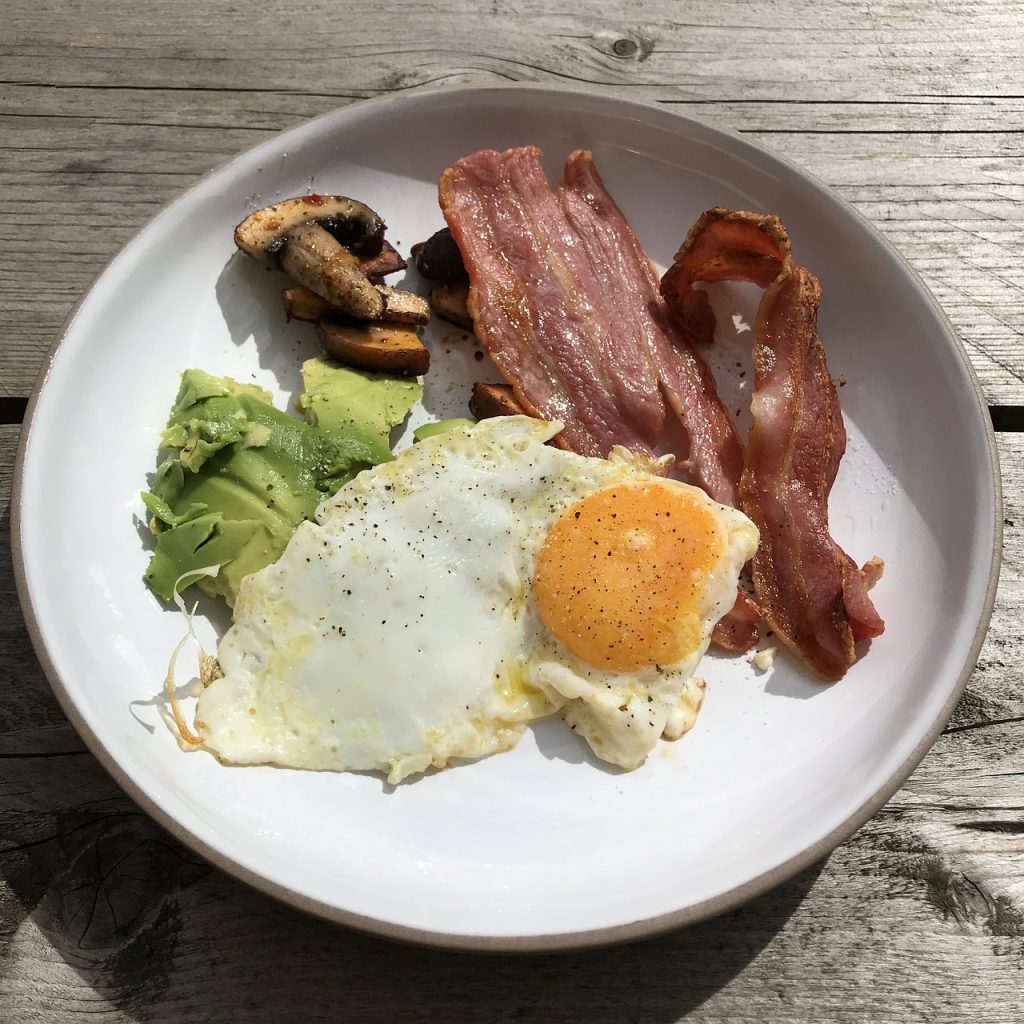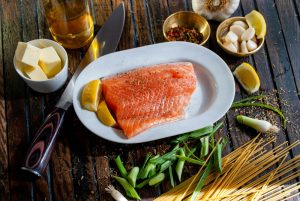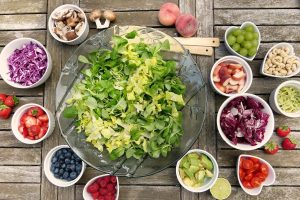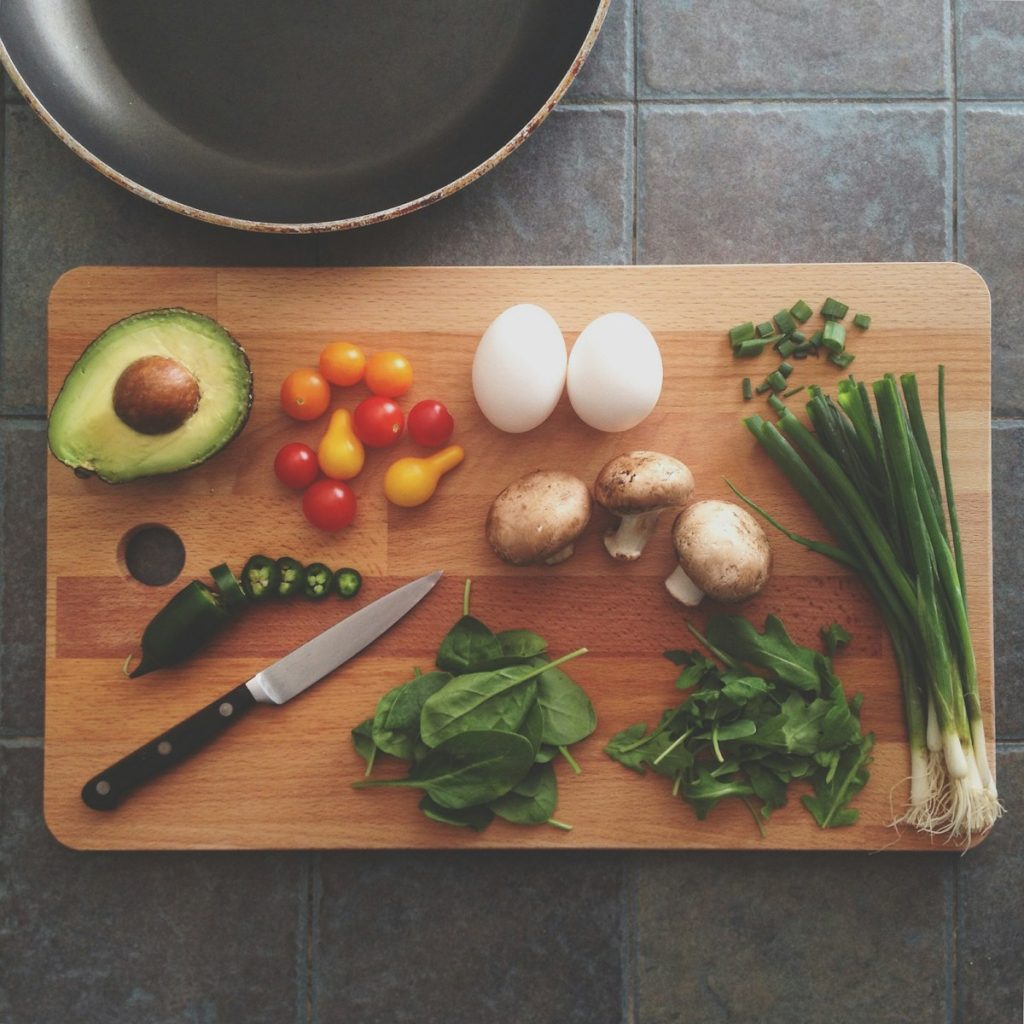What Is the Keto Diet? Is It Healthy?
Welcome to our guide on the keto diet! If you’ve been hearing about this popular diet and wondering what it’s all about, you’ve come to the right place. In this article, we will dive into the details of the keto diet, also known as the ketogenic diet, and help you determine whether it is a healthy choice for you.
The keto diet has gained significant attention in recent years for its potential weight loss benefits and its impact on various aspects of health. But what exactly is the keto diet? How does it work? And is it safe for everyone to follow?
In this comprehensive guide, we will answer all your questions about the keto diet, providing you with a clear understanding of what it entails and its potential benefits and risks. From understanding the basics of the keto diet plan to creating a personalized meal plan and exploring protein sources, we’ve got you covered.
Understanding the Keto Diet Plan
Are you curious about the keto diet and how it works? In this section, we will provide you with a comprehensive understanding of the keto diet plan. By following this low-carb, high-fat diet, your body enters a state called ketosis, where it uses fat as its primary fuel source instead of carbohydrates. Let’s dive into the details and guidelines for effectively following a keto diet.
How Does the Keto Diet Work?
The keto diet focuses on drastically reducing your carbohydrate intake while increasing your fat consumption. This shift in macronutrient balance forces your body to enter ketosis, a metabolic state where it starts metabolizing fat for energy instead of glucose. By following this diet plan, you can experience several benefits, including weight loss, improved mental clarity, and increased energy levels.
Guidelines for the Keto Diet
To follow the keto diet, you will need to adjust your eating habits and make specific food choices. Here are the key guidelines to keep in mind:
- Limit your carbohydrate intake to around 20-50 grams per day, focusing on low-carb vegetables and avoiding grains, sugars, and starchy foods.
- Increase your intake of healthy fats, such as avocados, nuts, seeds, and oils like olive oil and coconut oil.
- Include a moderate amount of protein in your diet, choosing sources like lean meats, poultry, fish, and plant-based protein options.
- Stay hydrated by drinking plenty of water throughout the day.
By adhering to these guidelines, you can effectively follow the keto diet and work towards achieving your health and weight loss goals.
Sample Keto Diet Plan
Take a look at the example below for a glimpse into what a day on the keto diet might look like:
| Meal | Food |
|---|---|
| Breakfast | Spinach omelet with cheese, bacon, and avocado |
| Lunch | Greek salad with grilled chicken and olive oil dressing |
| Snack | Almonds or celery sticks with cream cheese |
| Dinner | Salmon fillet with roasted asparagus and cauliflower rice |
| Snack | Keto-friendly smoothie with unsweetened almond milk, spinach, and nut butter |
This sample keto diet plan illustrates how you can enjoy a variety of delicious and satisfying meals while staying within the parameters of the keto diet.
Now that you have a better understanding of the keto diet plan, let’s move on to the next section, where we will explore the specific foods you should eat and avoid while following this diet.
Keto Diet Foods: What to Eat and Avoid
When following the keto diet, it’s important to know what foods you can incorporate into your meals and which ones to avoid. The keto diet focuses on consuming low-carb, high-fat foods to achieve a state of ketosis, where your body burns fat for fuel instead of carbohydrates. By following a well-balanced keto meal plan, you can maximize the potential benefits of this diet while minimizing the risks.
Keto Diet Foods to Incorporate
Here’s a list of keto-friendly foods that you can enjoy on the keto diet:
- Healthy fats: Avocado, olive oil, coconut oil, and butter
- Protein sources: Eggs, poultry, beef, pork, and fatty fish
- Low-carb vegetables: Leafy greens, broccoli, cauliflower, zucchini, and mushrooms
- Full-fat dairy products: Cheese, yogurt, and heavy cream
- Nuts and seeds: Almonds, walnuts, chia seeds, and flaxseeds
- Low-sugar fruits: Berries, such as strawberries, blueberries, and raspberries
These foods are rich in essential nutrients, including vitamins, minerals, and healthy fats, while remaining low in carbohydrates. They can help you maintain a state of ketosis and support your overall health and well-being.
Foods to Avoid on the Keto Diet
In order to stay in ketosis and reap the benefits of the keto diet, it’s important to avoid certain foods. These include:
- High-carb fruits: Bananas, grapes, and tropical fruits
- Starchy vegetables: Potatoes, corn, and carrots
- Sugary snacks and desserts: Cookies, cakes, and candies
- Processed and packaged foods: Crackers, chips, and sugary beverages
- Grains and legumes: Rice, pasta, bread, beans, and lentils
Avoiding these foods will help you maintain a low-carb, high-fat diet, supporting the goals of the keto diet and preventing any potential setbacks.
By incorporating keto-friendly foods into your meals and avoiding high-carb options, you can successfully follow the keto diet and potentially experience its many benefits, including weight loss, improved energy levels, and better mental clarity.
Creating a Keto Diet Meal Plan
When following the keto diet, having a well-structured meal plan is crucial for success. A personalized keto diet meal plan helps you ensure that you are consuming the right balance of macronutrients and staying within your daily carb limit.
Why a Keto Diet Meal Plan Is Important
By crafting a keto diet meal plan, you can take the guesswork out of meal preparation and make sure you have keto-friendly options readily available. This will not only save you time and effort but also help you stay on track with your weight loss goals.
Here are some benefits of having a keto diet meal plan:
- Efficient Grocery Shopping: With a meal plan in place, you can create a comprehensive grocery list of keto-friendly foods, ensuring you have everything you need on hand.
- Optimal Macronutrient Distribution: A well-designed meal plan helps you achieve the ideal macronutrient ratio of high fat, moderate protein, and low carbs required for ketosis.
- Diverse Meal Options: Planning your meals in advance allows you to incorporate a variety of foods into your diet, making it more enjoyable and sustainable in the long run.
Tips for Creating a Keto Diet Meal Plan
Here are some tips and suggestions to consider when crafting your keto diet meal plan:
- Calculate Your Macronutrient Goals: Use online calculators or consult with a nutritionist to determine your daily macronutrient targets for the keto diet.
- Focus on Whole Foods: Prioritize whole, unprocessed foods such as lean meats, fatty fish, eggs, vegetables, and healthy fats like avocados and olive oil.
- Plan Ahead: Set aside time each week to plan your meals and snacks. This will ensure that you have a comprehensive plan and can adjust your grocery shopping accordingly.
- Meal Prep: Consider batch cooking and meal prepping to save time during the week. Preparing meals in advance allows you to have keto-friendly options readily available.
- Stay Hydrated: Don’t forget to include an adequate amount of water in your meal plan to stay hydrated and support your overall health.
Remember, creating a keto diet meal plan that fits your lifestyle and dietary preferences is key. Don’t hesitate to experiment with different recipes and food combinations to keep your meals exciting and enjoyable.
Exploring Proteins for the Keto Diet
In the keto diet, protein plays a vital role in supporting your overall health and achieving your weight loss goals. Incorporating the right amount of protein into your meals is essential for maintaining muscle mass, promoting satiety, and supporting various bodily functions.
When following the keto diet, it’s crucial to select protein sources that are low in carbs and high in fat. This way, you can maintain ketosis, the metabolic state where your body uses fats for fuel instead of carbohydrates.
Here are some protein-rich foods that are suitable for the keto diet:
- Lean meats such as chicken, turkey, and beef
- Fatty fish like salmon, mackerel, and sardines
- Eggs, including the yolks
- Dairy products such as cheese, Greek yogurt, and cottage cheese
- Vegan protein sources like tofu, tempeh, and seitan
- Nuts and seeds, including almonds, walnuts, chia seeds, and hemp seeds
These protein sources are not only delicious but also provide essential nutrients like amino acids, omega-3 fatty acids, and vitamins. They can be incorporated into a variety of meals, including salads, stir-fries, omelets, and smoothies, to create a well-rounded and satisfying keto diet plan.
Keto Diet Pills: Do They Work?
When it comes to the keto diet, there is no shortage of supplements claiming to enhance results and accelerate weight loss. These keto diet pills promise to boost ketosis, increase fat burning, and suppress appetite. But do they really work? Let’s explore.
The Different Types of Keto Diet Pills
Before we dive into their effectiveness, it’s essential to understand the various types of keto diet pills available on the market. Here are the most common ones:
- Exogenous Ketones: These supplements contain beta-hydroxybutyrate (BHB), a ketone body that can be consumed externally. They aim to increase blood ketone levels, putting your body into a state of ketosis.
- Appetite Suppressants: These pills work by reducing hunger cravings, making it easier to maintain a calorie deficit and adhere to the keto diet plan.
- Metabolism Boosters: Some supplements claim to enhance your metabolism, helping you burn more calories throughout the day. This can potentially lead to increased weight loss.
Considering the Effectiveness
While keto diet pills may seem like a convenient solution, it’s important to approach their effectiveness with caution. Here are a few key points to consider:
- No Magic Pill: Remember, there is no substitute for a well-balanced keto diet and regular exercise. Pills alone cannot guarantee significant weight loss.
- Limited Scientific Evidence: The effectiveness of keto diet pills is still under research, and the available studies often have small sample sizes or conflicting results.
- Individual Variations: Each person’s body may react differently to these supplements, making it challenging to predict their effectiveness for everyone.
Understanding the Potential Risks
While keto diet pills may have their appeal, it’s crucial to be aware of the potential risks and side effects. Common considerations include:
- Unregulated Market: The supplement industry is not heavily regulated, meaning that quality control and accuracy of ingredients can vary.
- Adverse Reactions: Some individuals may experience side effects such as digestive issues, headaches, or insomnia when taking keto diet pills.
- Allergic Reactions: Certain ingredients in these supplements may trigger allergic reactions in some individuals. It’s important to read labels and consult with a healthcare professional if you have any allergies.
Conclusion
In conclusion, the keto diet offers a unique approach to weight loss by promoting low-carb, high-fat eating. Throughout this article, we have explored the fundamentals of the keto diet, its benefits, and potential risks. By understanding what the keto diet is and how it works, you can determine whether it is a healthy choice for you.
When following the keto diet, it’s important to have a well-structured meal plan. Fortunately, there are many free keto diet plans available online that can help you get started. These plans provide guidance on what to eat and when, taking the guesswork out of your daily meals.
If you find yourself dining out frequently, you may be wondering if there are keto-friendly options available at popular restaurants like Chipotle. The good news is, Chipotle offers a variety of customizable options that can be tailored to fit a keto diet. You can enjoy delicious and satisfying meals while staying on track with your keto lifestyle.
Ultimately, what you can eat on a keto diet is a combination of high-fat foods, moderate protein sources, and low-carb vegetables. By incorporating these types of foods into your meal plan and staying consistent, you can successfully achieve ketosis and reap the potential benefits of the keto diet.
FAQ
What is the keto diet?
The keto diet, short for the ketogenic diet, is a low-carb, high-fat eating plan that aims to put your body into a state of ketosis. In ketosis, your body switches from using carbohydrates as its main source of energy to using stored fat. This can lead to weight loss and several potential health benefits.
Is the keto diet healthy?
The keto diet can be a healthy choice for some individuals, but it may not be suitable for everyone. It is best to consult with a healthcare professional or registered dietitian before starting any new diet plan, especially if you have underlying health conditions or are taking medications. They can provide personalized guidance and advice based on your specific needs.
What foods can I eat on the keto diet?
On the keto diet, you can include foods such as meats, fish, eggs, low-carb vegetables, healthy fats, and some dairy products. It is important to focus on foods that are low in carbohydrates and high in fats. However, you should avoid or limit foods that are high in carbohydrates, such as grains, sugars, and most fruits.
How do I create a keto diet meal plan?
To create a keto diet meal plan, you need to focus on selecting foods that are low in carbs and high in healthy fats. Plan your meals and snacks around protein sources, choose non-starchy vegetables, and incorporate healthy oils and fats. It can also be helpful to track your macronutrient intake to ensure you are staying within the appropriate range for the keto diet.
What are some good sources of protein for the keto diet?
Some good sources of protein for the keto diet include meat, poultry, fish, eggs, dairy products, and plant-based protein sources such as tofu and tempeh. These protein sources can help you meet your protein needs while keeping your carbohydrate intake low.
Do keto diet pills work?
The effectiveness of keto diet pills can vary. While some individuals may experience benefits from using these supplements, it is important to note that they are not a magic solution for weight loss. It is always best to focus on following a well-rounded, balanced keto diet and incorporating regular physical activity for sustainable results. Consult with a healthcare professional before starting any new supplements.
Can I find a free keto diet plan?
Yes, there are various free keto diet plans available online. Many reputable websites and resources offer meal plans, recipes, and tips to help you get started with the keto diet. Just make sure to choose a plan from a reliable source and adapt it to suit your individual needs and preferences.
Can I follow the keto diet at Chipotle?
Yes, it is possible to eat keto-friendly meals at Chipotle. You can customize your order by choosing ingredients such as lettuce, meat, cheese, guacamole, and salsa while avoiding high-carb items like rice, beans, and tortillas. Chipotle’s website and mobile app also provide a nutrition calculator that allows you to customize and track the macros of your meal to fit your keto diet plan.




